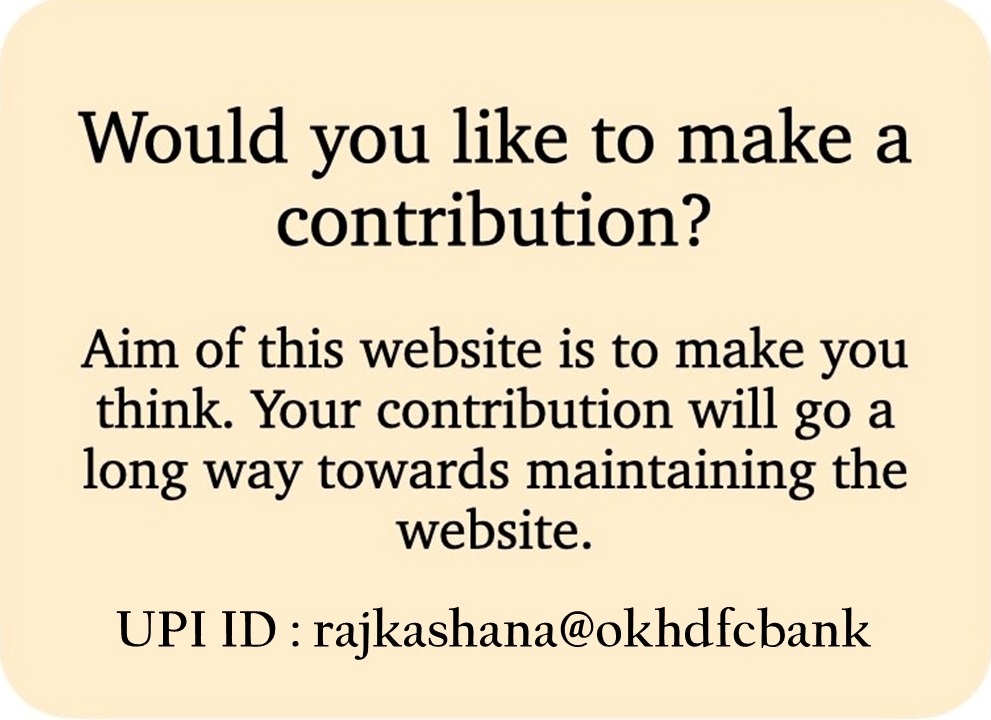The reality is more magical than we can possibly imagine.
Gabriel García Márquez
Open OTT app. Start watching a show. After 5 mins – wait, who is this actor? Open browser. Search show cast. Check the actor’s filmography. Hmm, this movie looks interesting. Is it streaming? Great. Open the movie. Watch for 5 mins. Add to watchlist. Go to YouTube. Start watching Hercule Poirot or Miss Marple.
This is how I decide what to watch. Choice paralysis? Sure, but it’s more than that. I sometimes feel like a kid whose Mom searches the internet for recipes, makes great dishes but all the kid wants to eat is a simple butter sandwich.
A word of caution. Don’t go by the first two paragraphs, that was just an opener. This article is not an in depth study of OTT and viewing habits. In fact, the article is such a curious mix of ideas and silly jokes that I am not even sure which category to put it under.
Narrator (Morgan Freeman voiceover) : Be forewarned, O weary internet traveller, this author has the attention span of a hummingbird sipping RedBull with its long beak. Leave the site before you get mired in the labyrinth of his half-baked ideas and unbaked solutions.
There is no rhyme or reason in the way I decide to watch a movie or a show; there is no method in this madness. Even when I stick to a movie or a show, it is no longer a linear viewing. If I like a shot, I go back and watch it a few times. Or if I don’t understand some reference, I stop the movie and search for the background information. While this helps me understand the movie context better, it has its own pitfalls. Sometimes, the search leads to something that is so rare and valuable that I feel like Jim Carrey in the movie The Mask where his eyeballs pop out after he sees Cameron Diaz.
Gen Z says gifs are passé. I say whatevs.
At such moments, I imagine my internal organs talking to each other.
Brain : Attention all units. We need dopamine, serotonin ASAP. Stop what you are doing, this is priority 1. This is not a drill.
Liver : Hey, I can’t stop working.
Brain : Not now, liv.
Liver : You just had two beers, who is going to process that alcohol? We will die in an hour if I stop working.
Brain : One hour? Hmm… I can still finish the video.
Liver : Ma sei completamente matto1! You are already high on that Dopa, aren’t you?
Brain : I just had a little taste, quality control is important you know.
Liver : Yamahama, it’s fright night!
That last phrase is from Seinfeld. My liver is a big fan and so am I. Not many people realise that many of the liver related health problems occur because you are watching one show and your liver wants to watch something else. Rule of thumb : Avoid crime shows as they always show gangsters drinking. It is a very stressful thing for a liver to watch. Au contraire, livers all over love kids shows because kids don’t drink.
So what are these videos that are causing so much havoc with my internal organs? Here are a couple of examples. First is an interview with Gabriel García Márquez.
Sorry, no subtitles. I thought about transcribing and translating the whole thing but did not want to get involved in copyright issues. Márquez provides some great insights into his writing process.
For Márquez, the idea for any book always starts with an image in his mind. He does not accept the present definition of magical realism, considers himself a realist. According to him, the reality in general and the reality of South America in particular, are more magical that we can possibly imagine. He wakes up at 6 AM every day, reads for 2 hours, writes from 9 AM to 2 PM. His week does not have Sundays. He feels uneasy if he does not write. He does not smoke or drink when he is writing. He used to have writer’s block, not anymore. Now, he does not start writing until the content has been resolved in his mind, as if he has just read it. It may take him as long as an year to write the first paragraph.
Rest of the book may be finished in 3 months. First paragraph determines the style, tone, and length of the book. According to him, writing is serious, hard work. To write well, you must have good health, like an athlete2.
The moments that gave him maximum pleasure were the moments when he was writing.
Second video is of George Gamow, a brilliant physicist from the last century. If you ever wondered about Quantum Mechanics, you should read his book Mr. Tompkins in Wonderland. It’s the most lucid explanation of Quantum Mechanics for laypersons that I have ever read. Here, Gamow is explaining stellar evolution but he is not explaining established science. The theories were still being developed at the time. So he says things like “The last time I talked to Schwarzschild..” The video also fits beautifully into my concept of Quiet Corners of the Internet.
Imagine the internet as a busy street. As you are walking down the street, ads are vying for your attention. Pop ups accost you at every corner. Breaking news is being shouted at top volume. Suddenly you see a dark alley and you enter. You see a small room. Outside, on a blackboard is the topic for today and the speaker’s name, written in chalk. You enter the room. It’s not crowded, just a handful of people are listening to the speaker who is saying some interesting things about an interesting topic.
It is at such times that I realise how lucky I am to be in this age at this time. I cannot get over this magical thing called internet. Alas, smartphones and internet have gotten a bad rep recently. Out of the many side effects of being online, two seem to be most dominant – reduction of attention span and FOMO.
The first inkling that my attention span was reducing came when I found myself unable to read a book without checking the phone every two minutes. So I made a paradigm shift in my perspective. I stared using my phone for reading. There are some amazing magazines online like Quanta, Aeon, or Nautilus. Once I started reading long articles on my phone, the transition back to books became much easier.
The second effect is a much more formidable beast. FOMO or Fear Of Missing Out was originally developed as a business concept but social media has made it much more prevalent. It is difficult to tackle because it occurs across so many areas of our lives. The amount of global financial loss due to FOMO should be an interesting statistic to calculate, if it can be done.
Here’s what I think. While FOMO in different areas may have different solutions, FOMO in general seems to be closely related to Ikigai. Ikigai is your purpose in life, the reason why you get up every morning. Let’s take an example. Someone posts pictures of their vacation in Venice on social media. If you feel FOMO looking at those pictures, that means you are not happy with where you are. Whereas if you have found your Ikigai, then by definition you are so happy following it and doing your own thing, that you do not want to be anywhere else. Another thing about Ikigai. More often than not, it adds value to humanity. Scientists, inventors, chefs – they all change the society for the better. The two gentlemen whose videos you see above : they would not stop doing what they love under any circumstances.
If you could go back in time, meet any of the great minds, Pythagoras, Aryabhata or Newton and tell them about smartphones and internet, I guarantee that they all would want to come back with you to a world where knowledge is practically free and 99% of it can be acquired without even leaving your home.
I am like a kid in a candy store while surfing the internet. Let me share just three amazing nuggets that I learned in the last 24 hours. And every single time I was like
Scientists at Australian National University have discovered that during our baby years when we are growing teeth, the climate changes around us are recorded in various layers of the teeth. This is because growing teeth have different amounts of oxygen isotopes that depend on the climate. In warm/dry climate, teeth accumulate more heavy isotopes of oxygen while in cold/wet climate, lighter isotopes get accumulated. So growing teeth in Amazon rain forest will have an oxygen isotope signature that will be completely different from the isotope signature of teeth growing in the Sahara desert. The scientists are using this technique on teeth of early hominids to determine the climate in which our ancestors lived.
Before paper was invented, people used to write on parchaments made of lamb or calf skins. It was difficult to make and rare so people used to recycle – scrape off the previous writing and write over it again. Using multispectral imaging, scientists have discovered erased writings of Greek astronomer Hipparchus, ‘father of astronomy’ who first discovered the Earth’s precession. A palimpsest at Saint Catherine’s Monastery in Egypt had manuscripts dating to 6th, 7th, and 8th centuries. When multispectral imaging revealed the writing that had been erased, it was the lost star catalog of Hipparchus that he originally made in 129 BCE.
Wasp-76 b and Wasp-121 b are two Hot Jupiter exoplanets that orbit their respective stars. Just like Jupiter, they are huge gas giants with very high gravity. When scientists studied the outer atmosphere of these exoplanets, they were in for a shock. They found barium in the outer atmosphere. Why is this surprising? Because barium is very heavy, almost 2.5 times heavier than iron. So how can such a heavy element remain in the outer atmosphere of an exoplanet that has a very strong gravity? It’s like you wake up one day, go outside and see heavy metal balls hovering in the sky.
Are you convinced that reality is magical? If not, here’s a final example from my own experience. This is a screenshot I took last month.

There are three variables in the image – date, time, and temperature. It is child’s play to adjust the first two. Taking a screenshot at 22:22 on 22nd September is ridiculously easy. It’s the third variable, temperature, that makes the whole thing so fascinating. First of all, daily temperature depends on so many variables – humidity, pressure, wind, precipitation etc. Moreover, the relationship between all these variables is non-linear and hence notoriously difficult to predict. Ergo, the ‘butterfly effect’ that states that a butterfly flapping its tiny wings in Tokyo may cause a cyclone in Mexico. Non-linear Dynamics and Chaos Theory is a fascinating branch of physics full of surprises. (For an amazing introduction to the subject, see Chaos : Making A New Science by James Gleick. No maths I promise and very lucid language.)
To make this screenshot worth taking, the window is only 1 minute. The probability of the temperature being 22°C during that 1 minute must be quite small.
So yes, I agree with Señor Márquez. Reality is indeed more magical than we can possibly imagine. We just have to know where to look.




